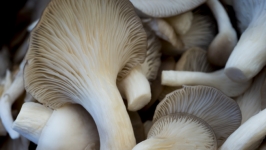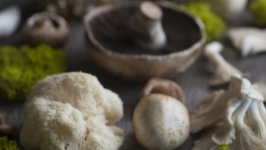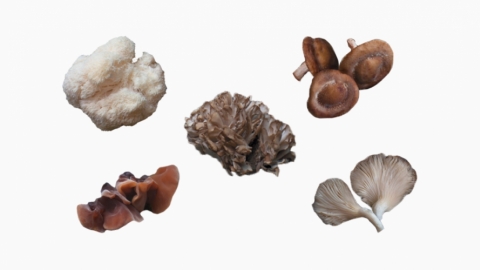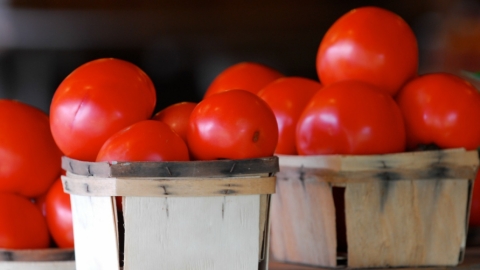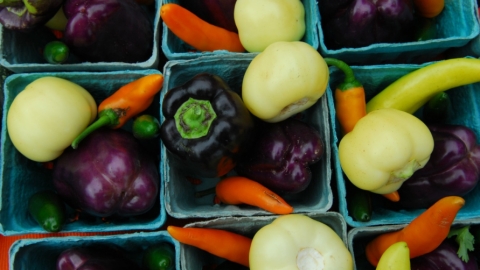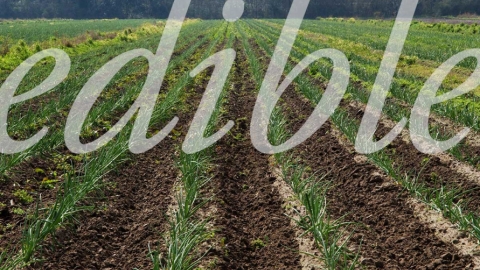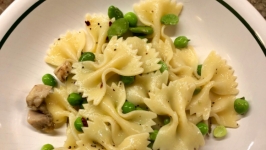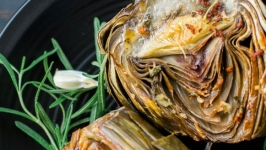Mushroom Mania in Santa Clara County
If someone asked you to name the number one crop of Santa Clara County, you might guess garlic with Gilroy’s world-famous festival, or you might suggest grapes, noting our burgeoning wine industry. In fact, the county’s top crop is edible fungi, aka mushrooms. California is America’s second-largest mushroom producing state, trailing only Pennsylvania. And in 2017, mushrooms pumped up Santa Clara County’s economy by the sizable sum of $79 million, easily eclipsing bell peppers, the next most lucrative crop, which came in just below $20 million, according to the Santa Clara County Crop Report.
Who are these mushroom farmers? And where in Silicon Valley are they hiding? Well, there’s South Valley Mushroom Farm in Morgan Hill and Global Mushrooms in Gilroy, both specializing in what in mushroom parlance are called “whites and browns”—white buttons, brown criminis and portabellos. Then there’s the generalist all-around giant Monterey Mushrooms in Watsonville and Morgan Hill, and the exotic mushroom producer Far West Fungi based in San Martin and Moss Landing.
The Dawn of Exotic Mushrooms
According to Kyle Garrone, a member of the tight-knit family that founded and runs Far West Fungi, the reason there are so many mushroom farms in Santa Clara County today is because of our region’s agrarian past. Livestock manure from the many farms in the valley accumulated at a formidable pace, providing a ready source of compost to grow commonly consumed mushrooms—those sturdy whites and browns. Over time tastes have changed, providing a growing market for more exotic mushrooms: shiitake; maitake; pink, blue and golden oyster mushrooms; wood ears; reishi; lion’s mane and king trumpets.
Today, mushroom farming has changed, a lot! At Far West Fungi, mushroom growing begins with aged red oak—a waste product from cabinet making —being ground into a fine sawdust, bagged and mixed with rice bran, pressure heated in autoclaves and then molded into blocks. These blocks are inoculated with mycelium-mushroom spawn propagated at Far West Fungi from mushroom tissue culture, and placed in mushroom houses for an initial four-week incubation period. Depending on the mushroom variety, some will then be moved to another mushroom house for a secondary incubation. Shiitakes, for example, start blistering like popcorn when they’re ready to get moved to their second incubation area, and then change color, from white to brown.
More than 10,000 pounds of Far West Fungi’s CCOF-certified organic mushroom varieties hit the local scene weekly at fine grocers, through wholesale and direct to consumers at 18 area farmers markets. Wild mushrooms foraged by professional pickers ranging from Monterey to Oregon round out their fungal fare, along with earthy morels, precious truffles, potent porcinis and delicate chanterelles. During the summer they dry mushrooms for year-round consumption. This process produces a savory, chewy, umami-filled tree mushroom jerky.
The Official Mushroom Man
Running a veritable mushroom empire, the Garrone family, as you might imagine, is pretty infatuated with mushrooms. Patriarch John Garrone was declared San Francisco’s “Official Mushroom Man” in 2005 by the Board of Supervisors. When asked what he most likes to do with mushrooms, son Kyle hesitates for a moment, seemingly stymied by the vast array of possibilities, and then a beatific smile appears on his face. “I like to take king trumpet and shiitake mushrooms and make a taco. Like a meat taco, except with mushrooms. Throw in some onions, garlic, white wine and lettuce.” Then he shakes his head, unable to resist adding, “It also makes a really nice risotto.”
The epicurean possibilities are endless. Head out to gather mushrooms at your neighborhood farmers market—indulge in a familiar favorite or take a chance and buy some exotic mushrooms you’ve never tried before. Savor the myriad flavors and textures of mushrooms and eat well, knowing that these exotic treasures don’t come from far-off lands but from here right at home.
Want to know where you can find local mushrooms to try at home in the kitchen? Visit Far West Farms' website for details.
